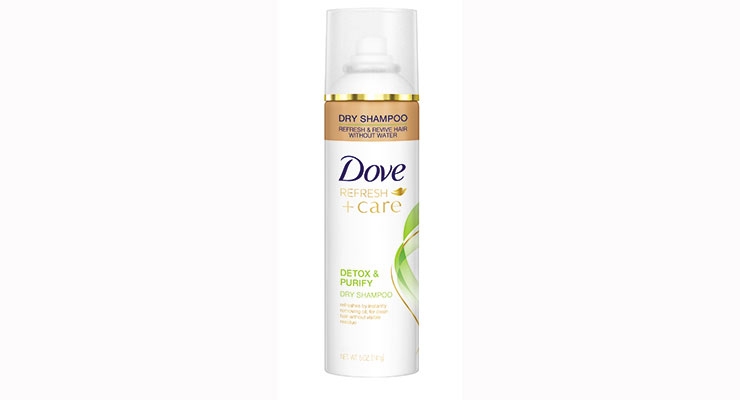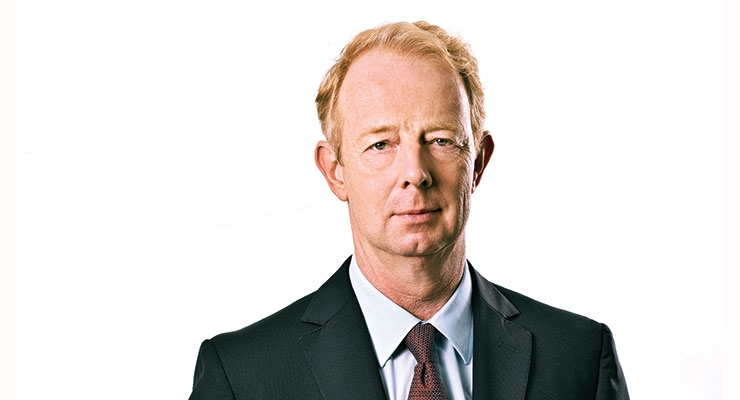11.02.16
Update: Unilever ranks at #2 on our latest report Top 20 Global Beauty Companies 2021.
London; Rotterdam
www.unilever.com
Corporate Sales: $58.2 billion
Beauty Sales: $22.3 billion
Key Personnel: Paul Polman, chief executive officer; David Blanchard, chief research and development officer; Marc Engel, chief supply chain officer; Alan Jope, president, personal care; Kees Kruythoff, president, North America; Jan Zijderveld, president, Europe.
Major Products/Brands: Axe/Lynx, Dove, Lifebuoy, Pond’s, Rexona, Signal, Close-Up, Sunsilk, Lux, Vaseline, Tigi, Dollar Shave Club, Dermalogica, Kate Somerville, REN and Murad, Camay and Zest.
New Products: Dove Advanced Hair Series, Dove Cream Oil Intensive Body Lotion, Lux Luminique (Japan), TRESemmé Perfectly (Un)done, BedHead Fully Loaded Volumizing Conditioning Jelly.
Comments: Unilever’s philosophy sounds somewhat similar to L’Oréal’s: “To make sustainable living commonplace and the foundation of business. To accelerate growth in the business, while reducing our environmental footprint and increasing our positive social impact.” By 2020, the multinational’s goal is “to halve the environmental footprint of the making and use of our products as we grow our business.”
Sales-wise, with corporate results totaling $58.2 billion, Unilever reported that in 2015, they had once again grown ahead of their markets despite what CEO Paul Polman called “a challenging year with slower global economic growth, intensifying geopolitical instability, and high currency and commodity volatility.”
Personal Care sales reached $22 billion in 2015, a growth of 4.1%. This category made up 38% of total sales, and was nearly double each of Unilever’s three other categories. Personal Care accounts for 38% of Group turnover and represents 48% of Group operating profit.
Polman said growth in Personal Care had improved from the slower movement in the previous year thanks to “innovations that grow the core of our brands and extend into more premium segments.”
In total, Unilever counts 13 one-billion euro brands—with 5 in the Personal Care Category. At the top of the chart are Axe and Dove, followed by Rexona, Lux and Sunsilk among other categories’ leaders. Also like L’Oréal, Unilever strives to succeed at both ends of the market, mass to prestige. In the past year, the multinational marketer has made a major play toward capturing sales in the growing luxury category, by acquiring high-growth premium skin care brands Dermalogica, Kate Somerville, REN and Murad.
Deodorants are also a Unilever mainstay, and in 2015, benefited from the launch of dry sprays in North America and compressed formats in Latin America. In hair, the Dove Advanced Hair Series rollout and the launch of Lux Luminique in Japan proved positive. The improved Dove body wash formulation achieved good results in skin and is now available in more than 30 countries.
Outside Prestige, Unilever took steps to strengthen its core skin care brands further, such as with the launch of the Dove DermaSpa range in Europe. Vaseline has also been the subject of a major initiative through a partnership with Direct Relief. In addition to Vaseline, the category has several other Sustainable Living brands, such as Dove, Lifebuoy and Signal, which Unilever says “meet consumers’ demand for responsible business and enjoy stronger, sustainable growth.” The Dove Self-Esteem Project has reached more than 19 million young people in 115 countries, encouraging women to develop a positive relationship with the way they look, and to make beauty a source of confidence rather than anxiety.
A major innovation in 2015 was the launch of Dry Spray deodorants across Dove, Degree (Rexona globally) and Axe. Reinventing the benefits of the spray format, the innovation delivered on the consumer need for a deodorant that goes on cleaner and drier.
In readying for 2016, Polman expressed jaded optimism: “We are preparing ourselves for tougher market conditions and high volatility in 2016. Therefore, it is vital that we drive agility and cost discipline across our business.”
News of Note in 2016
At the start of 2016, Unilever announced that in April, Dr. Marijn Dekkers would succeed Michael Treschow as chairman of Unilever N.V. and Unilever PLC. Dr. Dekkers was formerly CEO of Bayer AG. Treschow retired from Unilever.
In July, Unilever raised beauty eyebrows around the world with the announcement that it was purchasing Dollar Shave Club for $1 billion—and an instant share of the men’s grooming market.
Looking Ahead
For first-half 2016, Unilever’s sales increased by 5.4% at constant exchange rates and decreased by 2.6% at current exchange rates. Polman stated: “Our first half results further demonstrate the progress we have made in the transformation of Unilever to deliver consistent, competitive, profitable and responsible growth.” But he added: “We have been preparing ourselves for tougher market conditions in 2016 and do not see any sign of an improving global economy.”
Still, Personal Care sales improved across all sub-categories. Deodorants did well, supported by new variants of the successful dry sprays in North America and by the roll-out of Rexona Antibacterial that provides 10X more odor protection, into 36 new countries. The Axe range has been expanded to meet the growing Men’s Market. Hair was supported by the successful Sunsilk re-launch and by the TRESemmé Beauty-Full Volume range with a reverse conditioning system. In skin cleansing, Lifebuoy showed strong volume-driven growth across emerging markets driven by the brand’s handwashing campaign.
London; Rotterdam
www.unilever.com
Corporate Sales: $58.2 billion
Beauty Sales: $22.3 billion
Key Personnel: Paul Polman, chief executive officer; David Blanchard, chief research and development officer; Marc Engel, chief supply chain officer; Alan Jope, president, personal care; Kees Kruythoff, president, North America; Jan Zijderveld, president, Europe.
Major Products/Brands: Axe/Lynx, Dove, Lifebuoy, Pond’s, Rexona, Signal, Close-Up, Sunsilk, Lux, Vaseline, Tigi, Dollar Shave Club, Dermalogica, Kate Somerville, REN and Murad, Camay and Zest.
New Products: Dove Advanced Hair Series, Dove Cream Oil Intensive Body Lotion, Lux Luminique (Japan), TRESemmé Perfectly (Un)done, BedHead Fully Loaded Volumizing Conditioning Jelly.
Comments: Unilever’s philosophy sounds somewhat similar to L’Oréal’s: “To make sustainable living commonplace and the foundation of business. To accelerate growth in the business, while reducing our environmental footprint and increasing our positive social impact.” By 2020, the multinational’s goal is “to halve the environmental footprint of the making and use of our products as we grow our business.”
Sales-wise, with corporate results totaling $58.2 billion, Unilever reported that in 2015, they had once again grown ahead of their markets despite what CEO Paul Polman called “a challenging year with slower global economic growth, intensifying geopolitical instability, and high currency and commodity volatility.”
Personal Care sales reached $22 billion in 2015, a growth of 4.1%. This category made up 38% of total sales, and was nearly double each of Unilever’s three other categories. Personal Care accounts for 38% of Group turnover and represents 48% of Group operating profit.
Polman said growth in Personal Care had improved from the slower movement in the previous year thanks to “innovations that grow the core of our brands and extend into more premium segments.”
In total, Unilever counts 13 one-billion euro brands—with 5 in the Personal Care Category. At the top of the chart are Axe and Dove, followed by Rexona, Lux and Sunsilk among other categories’ leaders. Also like L’Oréal, Unilever strives to succeed at both ends of the market, mass to prestige. In the past year, the multinational marketer has made a major play toward capturing sales in the growing luxury category, by acquiring high-growth premium skin care brands Dermalogica, Kate Somerville, REN and Murad.
Deodorants are also a Unilever mainstay, and in 2015, benefited from the launch of dry sprays in North America and compressed formats in Latin America. In hair, the Dove Advanced Hair Series rollout and the launch of Lux Luminique in Japan proved positive. The improved Dove body wash formulation achieved good results in skin and is now available in more than 30 countries.
Outside Prestige, Unilever took steps to strengthen its core skin care brands further, such as with the launch of the Dove DermaSpa range in Europe. Vaseline has also been the subject of a major initiative through a partnership with Direct Relief. In addition to Vaseline, the category has several other Sustainable Living brands, such as Dove, Lifebuoy and Signal, which Unilever says “meet consumers’ demand for responsible business and enjoy stronger, sustainable growth.” The Dove Self-Esteem Project has reached more than 19 million young people in 115 countries, encouraging women to develop a positive relationship with the way they look, and to make beauty a source of confidence rather than anxiety.
A major innovation in 2015 was the launch of Dry Spray deodorants across Dove, Degree (Rexona globally) and Axe. Reinventing the benefits of the spray format, the innovation delivered on the consumer need for a deodorant that goes on cleaner and drier.
In readying for 2016, Polman expressed jaded optimism: “We are preparing ourselves for tougher market conditions and high volatility in 2016. Therefore, it is vital that we drive agility and cost discipline across our business.”
News of Note in 2016
At the start of 2016, Unilever announced that in April, Dr. Marijn Dekkers would succeed Michael Treschow as chairman of Unilever N.V. and Unilever PLC. Dr. Dekkers was formerly CEO of Bayer AG. Treschow retired from Unilever.
In July, Unilever raised beauty eyebrows around the world with the announcement that it was purchasing Dollar Shave Club for $1 billion—and an instant share of the men’s grooming market.
Looking Ahead
For first-half 2016, Unilever’s sales increased by 5.4% at constant exchange rates and decreased by 2.6% at current exchange rates. Polman stated: “Our first half results further demonstrate the progress we have made in the transformation of Unilever to deliver consistent, competitive, profitable and responsible growth.” But he added: “We have been preparing ourselves for tougher market conditions in 2016 and do not see any sign of an improving global economy.”
Still, Personal Care sales improved across all sub-categories. Deodorants did well, supported by new variants of the successful dry sprays in North America and by the roll-out of Rexona Antibacterial that provides 10X more odor protection, into 36 new countries. The Axe range has been expanded to meet the growing Men’s Market. Hair was supported by the successful Sunsilk re-launch and by the TRESemmé Beauty-Full Volume range with a reverse conditioning system. In skin cleansing, Lifebuoy showed strong volume-driven growth across emerging markets driven by the brand’s handwashing campaign.





























